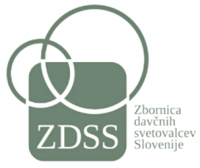CFE obvestilo 14.12.2021
BRUSELJ | 14. DECEMBER 2021
Poročilo o davčni politiki EU Evropskemu svetu
BRUSELJ | 14. DECEMBER 2021
Finančni ministri Evropske unije(v sestavi ECOFIN) so potrdili poročilo o davčnih zadevah v Evropskem svetu (voditelji držav in vlad) na podlagi ugotovitev delovne skupine in odobritvi »Coreper«
Sporazum EU o reformi stopenj DDV
Svet Evropske unije je dosegel dogovor o posodobitvi stopenj DDV v Evropski uniji v skladu z zadnjim osnutkom, ki ga je predlagalo slovensko predsedstvo, na podlagi prejšnjega predloga Evropske komisije z dne 18. januarja 2018 za spremembo direktive Sveta o skupni sistem davka na dodano vrednost glede stopenj davka na dodano vrednost.
Sporazum Sveta o preglednosti »kriptovalu« in regulatorju AML
Finančni ministri EU so potrdili pogajalski mandat Sveta za začetek medinstitucionalnih pogajanj z Evropskim parlamentom o krepitvi evropskega okvira za boj proti pranju denarja. Paket vključuje ukrepe v zvezi s preglednostjo kriptovalut, Predlog uredbe (EU) o informacijah, ki spremljajo prenose sredstev in določenih kriptosredstev, Predlog uredbe (EU) o ustanovitvi regulatorja AML (Uprava za preprečevanje pranja denarja in Boj proti financiranju terorizma in sprememba uredb (EU) in Predlog uredbe (EU) o preprečevanju uporabe finančnega sistema za namene pranja denarja ali financiranja terorizma.
……….
Andrej Šircelj, minister za finance Republike Slovenije, je o razvoju dogodkov dejal: »Današnji dogovor je pomemben korak k odpravljanju vrzeli v naših finančnih sistemih, ki jih kriminalci zlonamerno uporabljajo za pranje nezakonitih dobičkov ali financiranje terorističnih dejavnosti. Kriptovalute so vse bolj izpostavljena tveganju, da bodo izkoriščena za pranje denarja in kriminalne namene
Razvoj obdavčitve ogljika in energije v EU
EU se je seznanila s poročilom slovenskega predsedstva o predlogih za mehanizem prilagajanja ogljičnih meja in pregledu direktive o obdavčitvi energije, ki sta del tako imenovanega svežnja “Fit for 55”.
Profili držav OECD za izdajo prenosnih cen
OECD je objavila posodobljene profile držav o transfernih cenah v zvezi z 20 jurisdikcijami. Posodobitev obravnava obravnavo finančnih transakcij s transfernimi cenami in uporabo odobrenega pristopa OECD (AOA) za pripis dobička stalnim poslovnim enotam (PE). Profili držav o transfernih cenah pregledujejo prakse v jurisdikcijah glede uporabe načela neodvisnih strank, metod TP, analize primerljivosti, sporazumov o prispevku stroškov in drugih izvedbenih ukrepov. Posodobljeni profili držav vključujejo nove razdelke v zvezi z uporabo smernic OECD o transfernih cenah in AOA za stalne poslovne enote.
…..
Kratek povzetek v slovenskem jeziku.

BRUSSELS | 14 DECEMBER 2021
EU Tax Policy Report to European Council
The Finance Ministers of the European Union (sitting as ECOFIN) approved a report on tax issues to the European Council (Heads of states and governments), following working party group meetings and Coreper approval. The report highlights that the Slovenian Presidency of the EU, in spite of the significant challenges related to the prolonged COVID-19 crisis, managed to finalise a number of tax files. These include addressing the challenges arising from the digitalisation of the economy, the future of VAT rates, the revision of the Code of Conduct (Business Taxation) and updates to the EU list of non-cooperative jurisdictions for tax purposes, as well as, in the framework of the European Green Deal, a revision of the Energy Taxation Directive (ETD).
Regarding the future of corporate taxation, the report notes the upcoming legislative proposal by the European Commission aimed at implementing within the EU legal order of the two pillar agreement as well as ATAD3 – the legislative proposal setting out the EU approach to address tax avoidance issues arising out of the misuse of shell entities, coupled with a legislative proposal for the publication of effective tax rates paid by MNEs.
In the indirect taxes area, the Slovenian Presidency managed to progress the VAT rates reform, the system allowing the Commission to develop implementing powers to establish the meaning of the terms used in certain provisions of the VAT Directive, as well as exemptions on import and supplies, with regards to EU measures in the public interest.
Separately, it has been unofficially reported the European Commission already works on a proposal that would assign to the EU a portion of Member states’ revenue from the OECD tax deal, which has de facto replaced an earlier EU digital levy proposal. These revenues, which would count as own EU resources, are intended to finance the post-Covid pandemic recovery.
EU Agreement on VAT Rates Reform
The Council of the European Union reached an agreement to update the VAT rates in the European Union in accordance with the latest draft proposed by the Slovenian Presidency, based on an earlier proposal from the European Commission of 18 January 2018 to amend the Council directive on the common system of value added tax as regards rates of value added tax.
The European VAT rules will now encompass provisions addressing future crises, which enables member states to respond swiftly to exceptional circumstances, like pandemics, humanitarian crises or natural disasters. The Council agreed to phase out reduced VAT rates or exemptions on fossil fuels and other goods with a similar impact on greenhouse gas emissions, by 1 January 2030. The Directive now lists environmentally-friendly goods and services in the list for which reduced rates are allowed, such as solar panels, electric bicycles and waste recycling services. Reduced rates and exemptions for chemical fertilisers and chemical pesticides will end by 1 January 2032.
“We agreed on the proposal for a Council directive on rates of value added tax. This file has been discussed in the Council for a long while, and I’m glad that we have found a way to bring it to conclusion.”, Mr Andrej Šircelj, Minister for Finance of the Republic of Slovenia said.
The Council will formally adopt the amendments to the directive, once the European Parliament has given its opinion in accordance with EU law.
Council Agreement on Crypto-Assets Transparency & AML Regulator
EU Finance Ministers approved the Council negotiating mandate to enter into inter-institutional negotiations with the European Parliament on strengthening the European Anti-Money laundering framework. The package includes measures related to transparency of crypto-assets, Proposal for a Regulation (EU) on information accompanying transfers of funds and certain crypto-assets, Proposal for a Regulation (EU) establishing the AML Regulator (Authority for Anti-Money Laundering and Countering the Financing of Terrorism and amending Regulations (EU) and Proposal for a Regulation (EU) on the prevention of the use of the financial system for the purposes of money laundering or terrorist financing.
The crypto-assets related proposal imposes obligations for crypto-asset service providers to collect certain information on the senders, beneficiaries and operators of virtual/ crypto currencies, with a purpose of ensuring disclosure and ability of authorities to follow crypto-asset transfers as well identification, filing or blocking of suspicious transactions.
Andrej Šircelj, Minister for Finance of the Republic of Slovenia, said of the developments: “Today’s agreement is an important step towards closing the gaps in our financial systems that are malevolently used by criminals to launder unlawful gains or finance terrorist activities. Crypto-assets are more and more at risk of being exploited for money laundering and criminal purposes, and I’m glad the Council could make swift progress on this urgent proposal.”, Mr Šircelj noted.
EU Carbon Tax & Energy Taxation Developments
EU noted the Slovenian presidency report on the proposals for a carbon border adjustment mechanism and a review of the energy taxation directive, which form part of the so-called ‘Fit for 55’ package.
Speaking with Politico last week, the EU Commission Vice-President Frans Timmermans admitted there are differences with the US on the issue of carbon border adjustment taxation, stating it is unlikely the US would set a federal carbon price. Timmermans suggested the US should find other ways of putting a price on carbon, with regulation or taxation. “Does it have the same effect on their industry as our European Trading System has on our industry? If that’s comparable … there would be no need of having a carbon border adjustment mechanism between us.”, Timmermans said. The Commission Vice-President in charge of the Green Deal also acknowledges that the rising energy prices this winter might not prove to be the perfect opportunity for the EU to push for its ambitious climate change package, but noted the appetite of European citizens for action concerning climate change.
A carbon border tax as a means to level the playing field with China and Russia, which are among the largest carbon emitting countries, is set out as a key priority of the French presidency come 1 January 2022, when France takes over the rotating EU presidency from Slovenia.
OECD Release Transfer-Pricing Country Profiles
The selection of the remitted material has been prepared by:
Piergiorgio Valente/ Aleksandar Ivanovski/ Brodie McIntosh/ Filipa Correia
Originalno obvestilo CFE v angleškem jeziku.







